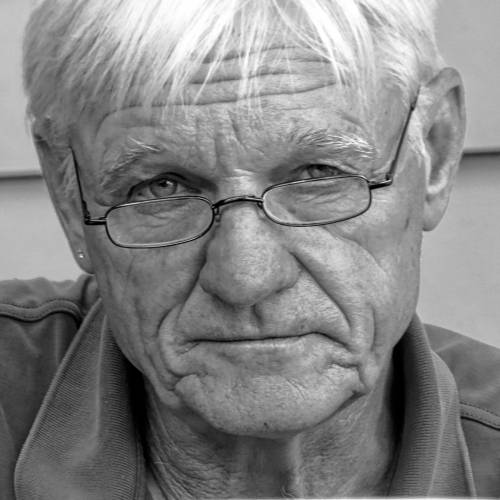The World Keeps Turning: Quantifying happiness — How we measure up

Allen Woods
|
Published: 04-26-2024 5:23 PM
Modified: 04-27-2024 5:05 PM |
A few weeks ago, Donald Trump again displayed his blissfully ignorant understanding of the modern world. At a fundraiser at the home of a billionaire in Palm Beach, Florida, he went off script (if there ever was a script) not only to complain about the people flooding the southern border from countries that are a “disaster,” but also to wonder about the lack of immigrants from “nice” countries like Denmark, Switzerland, and Norway.
Without going any deeper, it seems painfully obvious that people would be inclined to flee countries that are a “disaster” while staying home in “nice” countries. For years, candidates hoping to become what was once “the most powerful person on earth” were expected to understand not just the basics of human nature but the conditions that shape human choices as well.
In an increasingly data-driven world (from sports lineups to social media algorithms), I am often tempted to declare, “Figures don’t lie, but liars figure.” (Trump made himself the poster boy for the statement by initially disputing the size of his inaugural crowd, endorsing “alternative facts,” and by being found liable for fraud in a New York civil trial.) But the same analytical trend has inspired statisticians around the world to bring us yearly “happiness” rankings for every country.
They’ve regularly refined the questions they’ve used to measure “happiness” since 2012. And just like beauty (residing in the eye of the beholder), 3 of the 6 categories used in the rankings are clearly subjective and personal: the availability of social support, freedom in life choices, and corruption in business and government. They reflect people’s feelings regardless of the objective circumstances of their lives. (American elders are fond of citing rose-hued memories of childhood where “We didn’t have much, but we didn’t know any better” in describing a happier time.)
Trump’s naïve question about immigrants from Scandinavia can easily be answered by the world’s “happiness” rankings: For years, they have dominated the top 10 list of happiest countries. In 2024, Finland is ranked 1st, Denmark 2nd, Iceland 3rd, Sweden 4th, with the Netherlands and Norway 7th and 8th. Their citizens are happy where they are and aren’t beating down the door to move to the U.S., with its lowest ranking ever at 23rd (behind Costa Rica, Lithuania, and Slovenia).
The ”feelings” part of the rankings are balanced by objective measures of income (in purchasing power parity — PPP), expectations for a long and healthy life, and overall generosity (measured by charitable donations). The U.S. has maintained its rank in the top 10 for PPP, and even if we believe “money can’t buy happiness,” it certainly appears to be an influencer, as the “happy” Scandinavians rank near the top of PPP as well.
But it’s not enough to offset some other U.S. negatives. Healthy-life expectancy has taken a nosedive under our for-profit model compared to the dreaded “socialized medicine” in “happy” countries. And some of the most deeply rooted anger in the U.S. (for the left and right) is directed at elites who have too much power compared to average citizens. This bedrock belief leads to a poor rating for the perception of corruption in business and government.
Why do the hated elites have so much power? Because we have a corrupt system, well-greased by shady, big-money political contributions, which creates and supports this power disparity.
Article continues after...
Yesterday's Most Read Articles
One other notable distinction is “the Nordic model” of government in the happy countries, a system combining “free market capitalism with a generous welfare system” (investopedia.com/articles/investing/100714/nordic-model-pros-and-cons.asp). All have very high tax rates for wealthy people, and the government provides free education and health care along with guaranteed pensions for retirees, allowing them to live a life similar to their working years.
Some have termed this approach “democratic socialism,” buzzwords conjuring something scary and limiting for the political right wing, regardless of the sense of happiness and well-being it creates in residents.
In America, we love our freedom to participate in the dog-eat-dog world of competitive capitalism until we end up on the losing side: facing a crushing debt for college, a health crisis threatening to bankrupt a lifetime’s savings, or a Social Security check that makes choosing between heat and food a necessity.
Donald Trump may not understand why people choose to migrate, or stay home, but he certainly knows how to inflame the fears dark-skinned migrants create in Palm Beach (94% white) and elsewhere. Behind its gates and walls, he declared, “I don’t think they’re on this island … But they’ll be here. Eventually, they’ll be here.”
Allen Woods is a freelance writer, author of the Revolutionary-era historical fiction novel “The Sword and Scabbard,” and Greenfield resident. His column appears regularly on Saturdays. Comments are welcome here or at awoods2846@gmail.com.

 Guest columnist Gene Stamell: We know what we know
Guest columnist Gene Stamell: We know what we know Kathy Sylvester: Vote for expertise on May 6
Kathy Sylvester: Vote for expertise on May 6 Shirley and Mike Majewski: Vote for Blake Gilmore
Shirley and Mike Majewski: Vote for Blake Gilmore Michelle Caruso: Questions candidate’s judgment after 1980s police training incident
Michelle Caruso: Questions candidate’s judgment after 1980s police training incident
